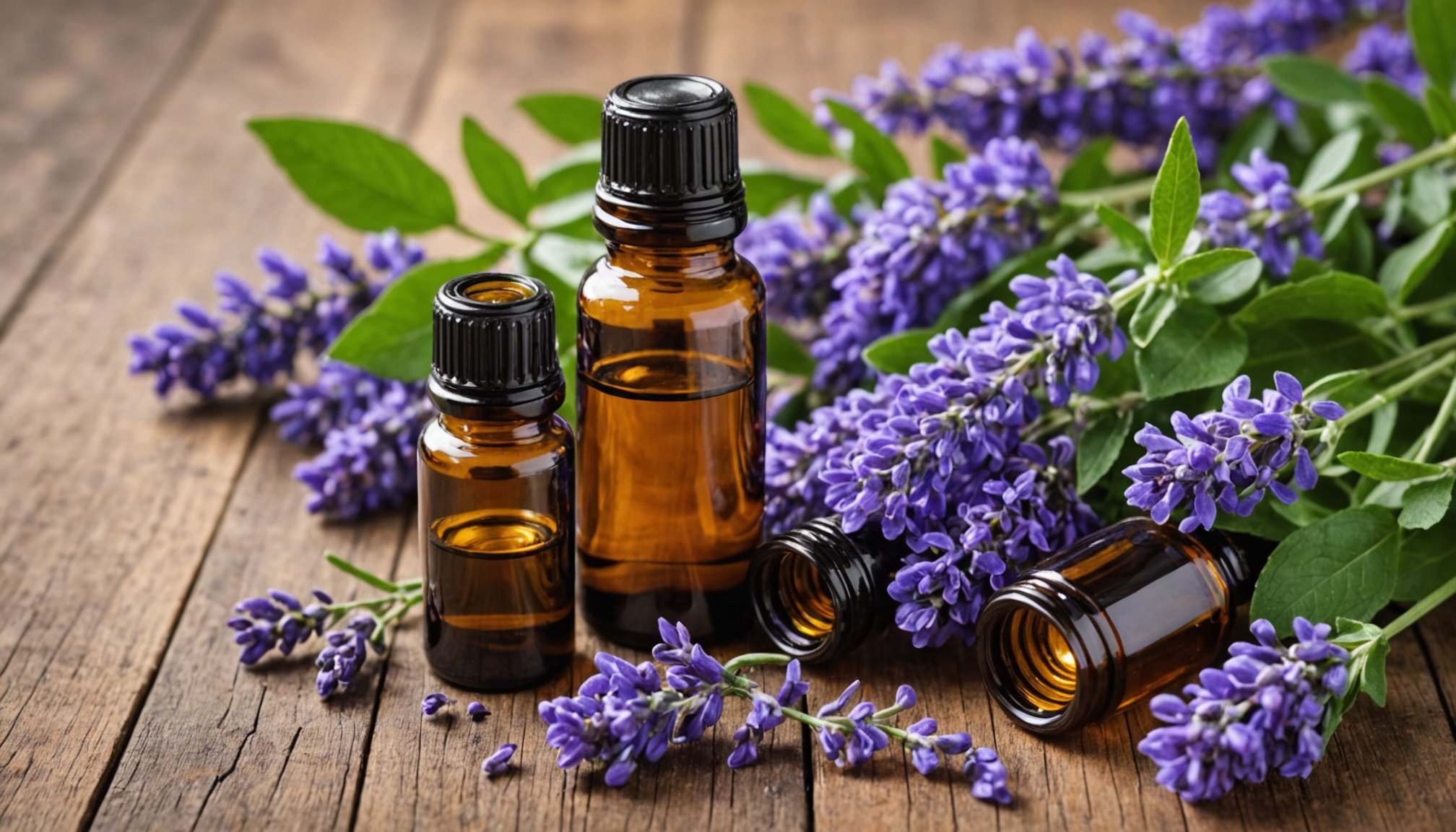Overview of Essential Oils and Their Use During Pregnancy
Essential Oils are concentrated plant extracts renowned in wellness and alternative medicine for their aromatic and therapeutic properties. They are often employed in aromatherapy, skincare, and general wellness routines. However, during pregnancy, it’s crucial to understand both the benefits and potential risks associated with these potent substances.
When it comes to pregnancy, some Essential Oils offer calming and soothing effects, aiding with ailments such as nausea and anxiety. However, other oils can pose risks due to their ability to influence hormones or cause uterine contractions, which may jeopardize pregnancy safety. Thus, a nuanced understanding of Essential Oils Guidelines becomes indispensable for expecting mothers. Proper knowledge ensures that these natural remedies enhance rather than impede well-being during a sensitive time.
Topic to read : Understanding the UK Guidelines for At-Home Wireless Fetal Monitoring Devices
Adherence to these guidelines helps mitigate risks and improves outcomes. Expecting mothers should use trusted sources and remain informed, as not all essential oils are appropriate during this period. Understanding these nuances is crucial to harnessing the potential benefits while maintaining both safety and comfort throughout pregnancy.
Essential Oils That Are Safe to Use During Pregnancy
Expecting mothers seeking comfort can confidently turn to certain Essential Oils. These oils, recognised for their soothing properties, also adhere to guidelines ensuring Pregnancy Safety.
Also read : Essential Oral Hygiene Tips for Expecting Mothers in the UK: A Comprehensive Guide
Safe Essential Oils for Relaxation
Lavender, chamomile, and ylang-ylang often top recommendations for relaxation. Known for their calming effects, they help mitigate stress and anxiety, common hurdles during pregnancy. Utilise these oils through diffusion or light topical application post-dilution.
Essential Oils for Nausea Relief
For those battling morning sickness, ginger and peppermint oils are valued for their nausea-relieving benefits. Applying them sparingly on pressure points can offer quick relief. Aromatherapy through inhalation is another safe and effectual method.
Oils That Promote Sleep
Sleep disruptions can be a notable concern for expecting mothers. Here, lavender again serves as a multi-beneficial oil, renowned for enhancing sleep quality. When used in a diffuser before bedtime, it promotes a restful night’s sleep, contributing considerably to overall wellness.
Strategic use of these oils can significantly enhance comfort during pregnancy, provided adherence to safe practices and dilution guidelines, ensuring peace of mind.
Safety Guidelines for Using Essential Oils During Pregnancy
When using Essential Oils during pregnancy, prioritising safety is critical. Pregnancy Precautions include diluting oils before application, as their concentrated nature can lead to skin irritation. Topical use is generally preferable to oral consumption. Applying diluted oils on the skin allows absorption without overwhelming the body.
Safe Usage Tips suggest diffusing oils at home for aromatherapeutic effects. Use a diffuser in a well-ventilated area, limiting sessions to 15–20 minutes. This practice minimizes potential respiratory issues while offering relaxation benefits. Always ensure the oils are suitable for use around pregnant individuals.
Consulting healthcare professionals is a key step for Essential Oil Safety. Medical opinions can provide insights into potential outcomes and interactions with ongoing treatments. Expecting mothers should seek professionals experienced in pregnancy and alternative medicine. Before starting essential oils, discuss individual health circumstances with a provider, enhancing safety assurance.
These practices and precautions aim to harmonise the benefits of essential oils with maternity wellbeing. Adequate knowledge and professional advice play substantial roles in creating a nurturing environment for both mother and child.
Essential Oils to Avoid During Pregnancy
Selecting Essential Oils during pregnancy requires caution due to potential risks. Certain oils, like rosemary, sage, and clary sage, are commonly advised against. These oils have properties that can influence hormonal activity, potentially leading to complications. For instance, rosemary is thought to stimulate uterine contractions. Sage and clary sage might affect hormones such as estrogen, posing risks to pregnancy safety.
Understanding these pregnancy restrictions is crucial. Avoidance of these oils helps prevent unnecessary complications and ensures the well-being of both the mother and the unborn child. Experts caution against these essential oils due to their potential to adversely affect the pregnancy.
Healthcare professionals often underline the importance of steering clear of certain oils, advising expecting mothers to adhere to established guidelines on unsafe oils. Consulting with healthcare providers about the use of essential oils ensures that mothers receive tailored advice based on individual health needs. This professional insight is invaluable to support a safe and healthy pregnancy journey, avoiding oils that might compromise maternal and fetal health.
Consulting with Healthcare Providers
Pregnancy Healthcare often requires nuanced discussions, especially when integrating Essential Oils. Consulting with healthcare providers is paramount in ensuring that Professional Advice aligns with specific health circumstances. As essential oils can affect hormone levels and uterine activity, professional input helps tailor guidance to suit individual needs.
Importance of Professional Guidance
Expecting mothers should seek professional insights before incorporating essential oils into their pregnancy routines. Physicians and practitioners experienced in both essential oils and pregnancy can identify potentially risky oils and provide personalized Pregnancy Healthcare advice.
Finding a Knowledgeable Practitioner
Choose a healthcare provider familiar with essential oils’ properties and their implications during pregnancy. Search for professionals within alternative medicine networks or those who have previously worked with essential oils to ensure expertise and reliable guidance.
Questions to Ask Your Provider
When consulting with your practitioner, consider asking:
- Are specific essential oils safe for my pregnancy stage?
- What are possible interactions with my existing health conditions or medications?
- Can you recommend dosage and application methods for Safe Essential Oils?
These inquiries enable informed decisions, aligning essential oil use with pregnancy safety. Prioritize clear communication with healthcare providers to nurture a healthy pregnancy journey.
UK Regulations and Market Overview on Essential Oils
Understanding the regulatory landscape for essential oils in the UK is vital for consumers and suppliers alike. The UK maintains stringent safety standards to ensure consumer protection and product efficacy. These regulations include requirements for proper labeling, which must accurately detail the oil’s botanical source, method of extraction, and any dilution. Knowing these details helps users make informed choices regarding which oils are beneficial and safe.
Market insights show that demand for essential oils is on the rise, driven by increased interest in natural and holistic wellness solutions. However, this popularity also necessitates strict marketing practices to prevent misleading claims about the oils’ capabilities. Adhering to consumer protection laws is vital in maintaining trust.
For safety assurance, sourcing essential oils from reputable suppliers is recommended. Reputable sources are more likely to adhere to UK regulations, offering products that pass quality tests and sustainability criteria. These measures collectively enhance both market credibility and consumer safety, ensuring that the benefits of essential oils can be enjoyed without compromising health or wellbeing.
Testimonials and Anecdotes from Expecting Mothers
Essential oils have become a cherished part of many pregnancy journeys, providing comfort and relief when used safely. Numerous mothers have shared their personal experiences of using essential oils during this sensitive time, illustrating their usefulness despite challenges.
Rachel from London found lavender oil invaluable for relaxing after hectic days. She emphasized using a diffuser for indirect inhalation, following safety guidelines. Similarly, Emma, a mother-to-be, praised ginger oil for alleviating her morning nausea, highlighting the importance of proper dilution and limited application frequency for safety.
These stories underline the significance of personal choices, guided by professional advice. One mother recounted her excitement over peppermint oil’s effect on her energy levels but remained cautious due to potential sensitivity issues.
Pregnancy Comfort is significantly enhanced when these oils are chosen and applied judiciously. Indeed, many mothers emphasized the emotional support provided by these oils, finding them mood-lifting and stress-relieving. Balancing these anecdotes with professional guidance ensures that essential oils remain a safe, beneficial addition to the maternity wellness toolkit.











